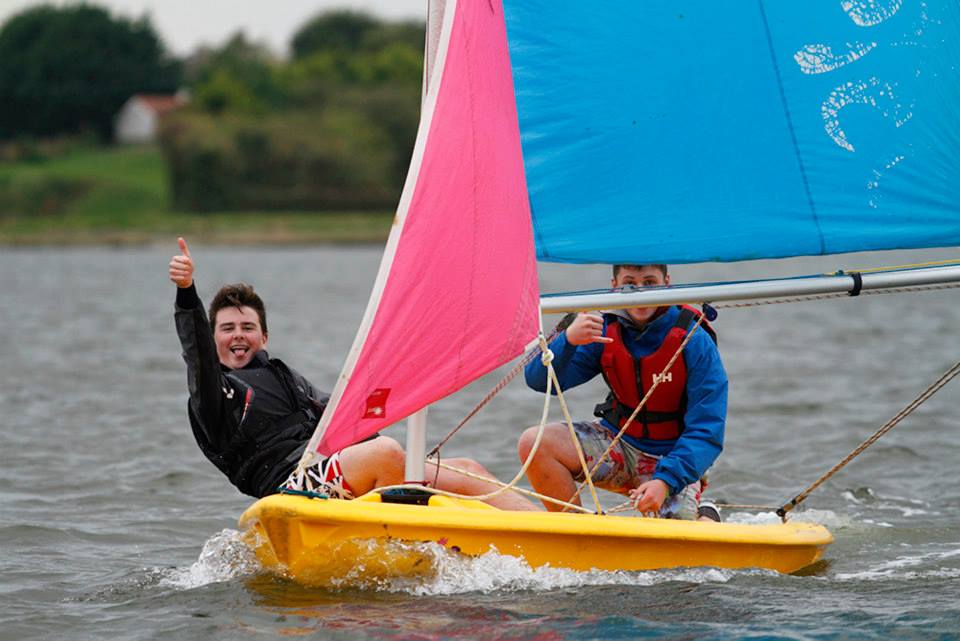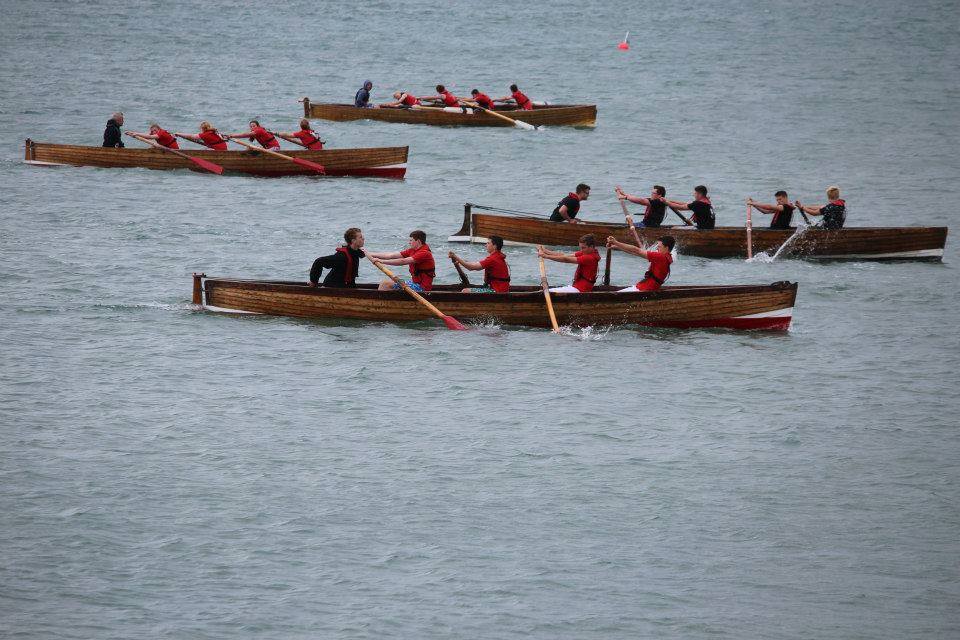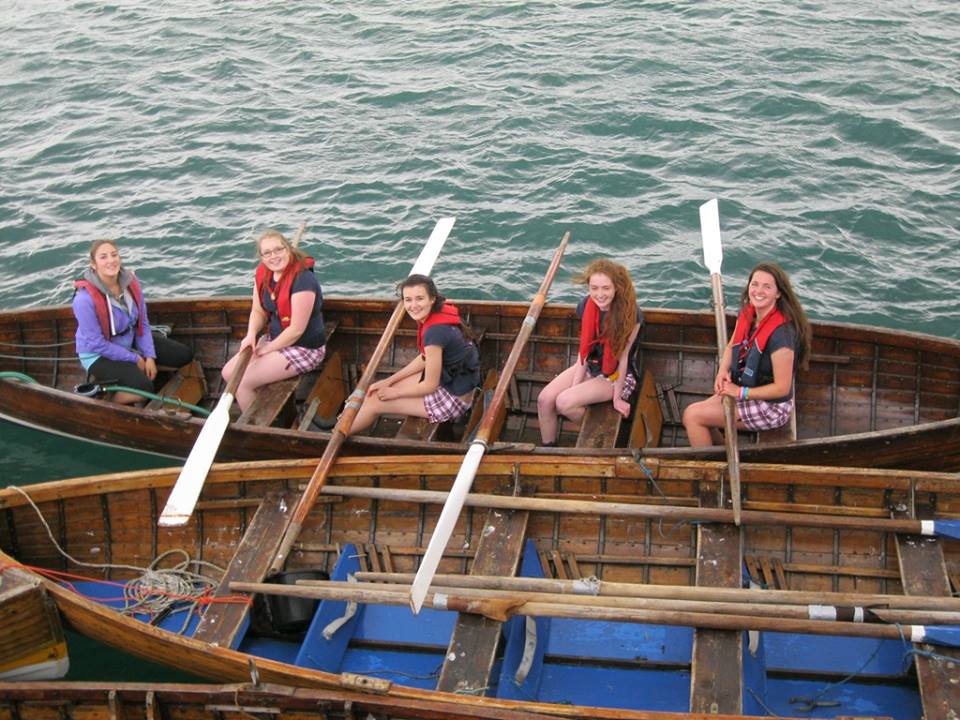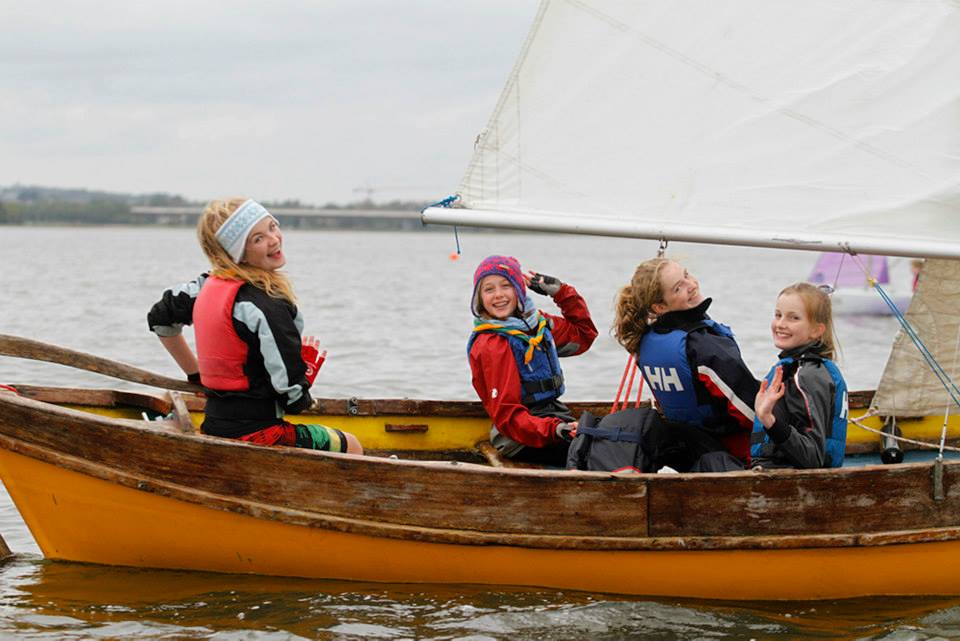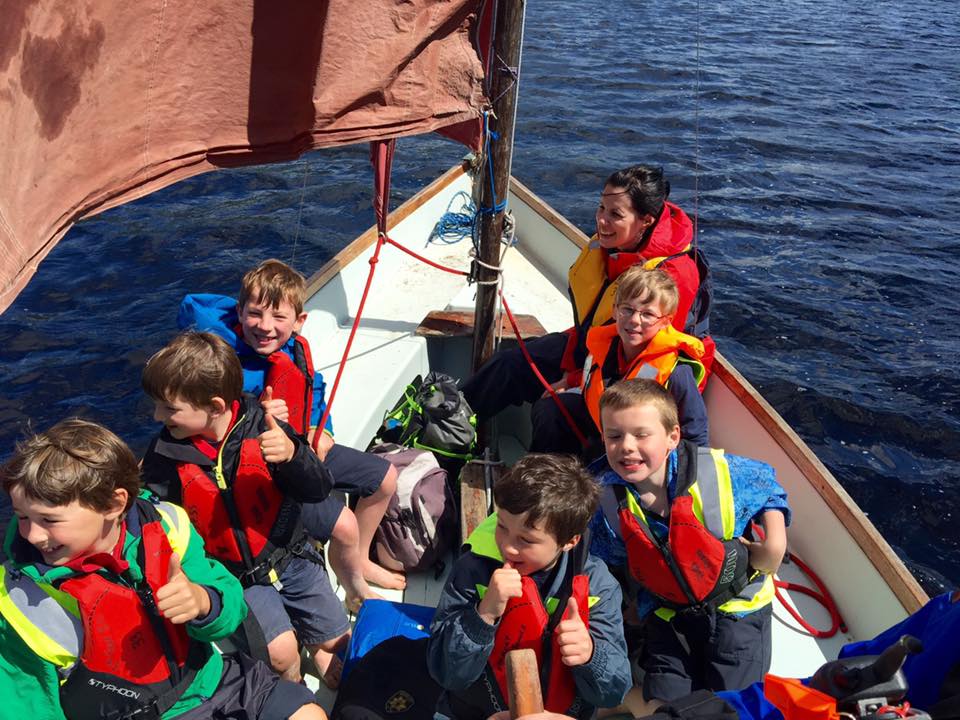About
Sea Scouting (Gasógaíacht Mhara) has existed in Ireland since 1912. All Irish Sea Scouting Groups are members of Scouting Ireland.
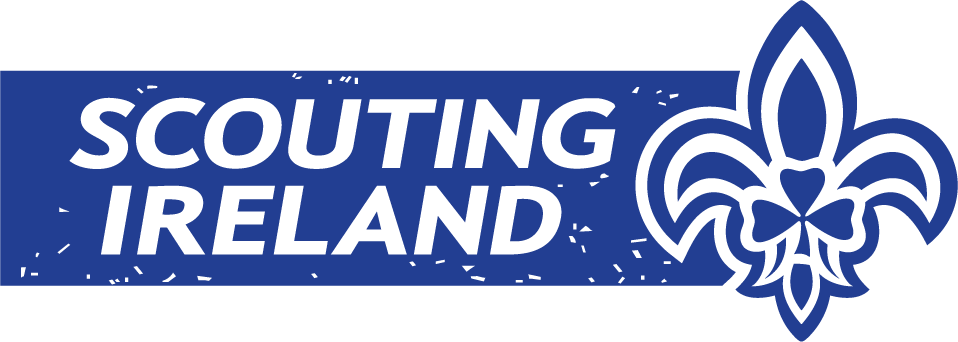
What is Sea Scouting?
Sea Scouting is a programme theme within the Scouting journey.
Sea Scouting Groups in Ireland operate the same as every other Scout Group in the Country. Some say Sea Scouts are just a little more magic than the rest but the only real difference is Sea Scouting Groups have a stronger commitment to water safety, seamanship training and activities on the water.
Typically, any Scout Group regularly facilitating sailing and boating activities for their Scouts is a Sea Scouting Group.
The programme is designed to foster a love of adventure on the water alongside building technical activity skills and leadership opportunities.
Typical activities may include; dinghy sailing, rowing, rafting, swimming, kayaking, windsurfing, powerboating, canoeing, marine science & oceanography, keelboat sailing, engine maintenance, chartwork & navigation, preservation of maritime heritage, water safety and seamanship; ropework, line-handling, meteorology, boat maintenance, communications.
Ireland and Sea Scouting is rich in maritime culture so you will often find Sea Scouting Groups emphasising a nautical framework and tradition in their activities.
Sea Scouting Can have it’s own language…
– Patrols are called Watches.
– A Section Leader is called Skipper.
– Most Sea Scouting Scouts, Ventures, Rovers & Scouters will wear the Navy-Knit Sea Scout Jumper, belt and duck (hat) as their uniform.
– Most Sea Scouting Beavers & Cubs will wear the Navy-Knit Sea Scout Jumper.
– Many Groups are know by their Port Number. eg. 1st Port of Dublin (Ringsend), alongside their normal Scout Group Number.
– Blessing of the Boats/ Launch Day is an annual feature to formally start the summer boating season.
– Laying-Up Supper is a celebration of a safe & successful year afloat.
– YiSS is a signature signoff for Yours in Sea Scouting.
– Bravo-Zulu (BZ) means a job well done.
But its activities familiar to all Scouts.
Sea Scouting Groups offer a balanced programme of land and water activities to their members by encompassing all aspects of the ONE Programme. Sea Scouts will find themselves just as comfortable on the mountains and hills as they are at sea level. Camping under canvas, campcraft and hiking expeditions are a normal part of the programme.
Sea Scouting is open to all.
Sea Scouting is a nautical framework accessible to Beavers, Cubs, Scouts, Ventures & Rovers.
Anyone can become a Sea Scout, regardless if you are located by the sea, a river, a lake, inland waterways or even your closest puddle; we are sometimes affectionately known as puddle-pirates! – The important thing is a committment to safety, seamanship and adventure afloat.
You can find your local Sea Scouting Group HERE.

Alongside this there is an extensive network of peer groups, external partners and active annual calendar of regattas and events.
Some things are worth mentioning:
– Sea Scouting doesn’t require huge amounts of expensive equipment.
– Adult volunteers in Sea Scouting don’t need advanced qualifications in water sports to join.
– Experience in Sea Scouting and watersports isn’t essential for membership.
– Scout Groups interested in having a nautical slant to their programme can follow a pathway to becoming Sea Scouts.Scout Groups interested in learning about developing a nautical and Sea Scouting programme should get in contact with us. Scout Groups interested in becoming Sea Scouts will be provided with technical and equipment support, a network of contacts and practical hands-on training. We would be very pleased to help you build your skills and present you a Port Number and the Sea Scouting Ensign! In particular, we are interested in hearing from Scout Groups in the Northern and Western Provinces. We are interested in hearing from communities who would like to bring Sea Scouting to their area.
We are interested to hear from coastal and waterside communities who would like to open a Sea Scout group in their area. We can share our experience, supports and advice on getting up and running.Certain communities previously had Sea Scouting groups, which have since closed for various reasons. Re-opening these groups would help a new generation of young people access fun, friendship and challenge afloat.For example Limerick City, Cork City, Ballyfermot, Loughshinny and Rosses Point once had thriving Sea Scout groups.
Could you help revive them?
Volunteers in Sea Scouting are diverse, and keep the movement afloat.
Our volunteers come from all sorts of backgrounds and do a wide range of jobs.
Some came to Sea Scouting with no skills afloat and learned their craft with us. Others brought valuable skills in watersports, DIY, administration, marine science, sustainability or fundraising. Creativity, community spirit and an interest in being part of a team of volunteers are the key characteristics of prospective volunteers. Some are parents of members, others were members themselves, but many only came to Sea Scouting as adults.
Find out more about volunteering in Sea Scouting by arranging a call with us. Contact us HERE
And are supported by many Friends of Sea Scouting.
Many professionals in the shipping, sailing, military, meteorology, and marine science industries (and much more) support us by offering occasional assistance in their areas of expertise.
Allowing young people to engage with inspirational individuals in the marine sphere is one of the unique offerings of Sea Scouting.
To offer occasional support as a Friend of Sea Scouting, contact us HERE
Starting a Sea Scouting Group
A Sea Scouting Group can be setup anywhere; the only requirement is a sense of adventure and commitment to water safety, boating equipment and skills will follow.
A community wishing to start a new Scout Group should first contact Scouting Ireland National Office who will appoint a local liaison (County Commissioner) to start your journey.
Here you should indicate your preference to create a Sea Scouting Group.
The Sea Scouting Team via the ‘Expression of Interest’ can advise on issuing Port number, your Sea Scouting Ensign and recognition of any existing boating skills or local training aids.
Existing Scout Groups may also hit the ‘Expression of Interest’ for support in establishing a Sea Scouting Section in your Group or issuing a Port number should the Scout Group wish to create a Sea Scouting identity.
For over 100-years, Sea Scouting in Ireland has been supported by a Sea Scouting Programme Team.
This volunteer team works to provide resources and guidance on training, safety and equipment to Scouting Groups afloat while also acting as Scouting Irelands expertise on water-activities.
The team can be contacted on [email protected]
Sea Scouting in Ireland has a strong network of connectivity between Groups to support and share with one another.
This network of support is organised via the local Groups and loosely aligned to the Scouting Ireland Provincial structure, but of course with a nautical flavour!
Northern Province – Atlantic
North-Eastern Province – East Coast
Dublin Province – Dublin Docklands
South-Eastern Province – Tuskar
Southern Province – Fastnet
Western Province – Atlantic
